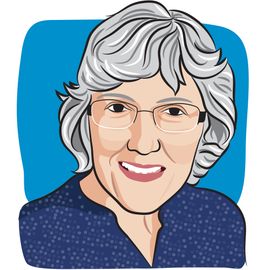- About Us
- Advertise / Support
- Editorial Board
- Contact Us
- CancerNetwork.com
- TargetedOnc.com
- OncLive.com
- OncNursingNews.com
- Terms & Conditions
- Privacy
- Do Not Sell My Information
- Washington My Health My Data
© 2025 MJH Life Sciences™ and CURE - Oncology & Cancer News for Patients & Caregivers. All rights reserved.
How COVID-19 Robs Patients with Cancer of Their Precious Time

Kelly Irvin is a multi-published novelist and former newspaper reporter who worked in public relations for more than 20 years. She retired from her day job in 2016 after being diagnosed with primary lateral sclerosis, a degenerative motor neuron disease, and stage 4 ovarian cancer. She spends her days writing and loving her family.
Time is a valuable commodity, especially for patients with cancer who may find themselves with limited time or limited free time to enjoy the things they loved prior to their cancer. But the COVID-19 pandemic is robbing patients of that precious time.
Cancer has taught me many lessons, but one that stands out during this pandemic is how important time is.
People tend to go through life thinking they have all the time in the world. They’ll have time to spend with their children or grandchildren later when they’re done with their careers. They’ll take that big trip to Europe when they retire. They’ll write a book . . . someday. There’ll be time enough. When you have cancer, you don’t think that way.
At least I don’t.
I have stage 4 ovarian cancer. When I was diagnosed in January of 2016, statistics indicated I had a 19 percent chance of surviving five years. That’s why I so deeply resent the COVID-19 pandemic. It’s stealing the time I have left to fully live.
I’ve been receiving chemotherapy on and off—more on than off—for almost five years. My immune system is shot. When the pandemic started to unfold, I was in Virginia visiting my grandchildren. I fell and fractured my hip. Instead of spending time with family, I spent a week in the hospital and another in rehab unable to have my family visit because of the virus. Then I came home to South Texas. That was six months ago. I haven’t been in a store or restaurant in six months. The only place I go is to my doctor’s appointments.
I’ve never gone more than six months without visiting those grandkids in Virginia. As long as the pandemic rages, the closest I’ll get to them is FaceTime. It’s too risky to fly. Even if I could, I can’t visit kids who are attending public school. My church is returning to in-church services this Sunday, but I won’t be able to go. I miss my church family. I miss Sunday school. I miss attending bible study in person.
This is time I can’t get back. I don’t know how much I have, but it’s considerably less than it was before I had cancer complicated by a motor neuron disorder. Since my diagnosis I’ve tried hard to make my time count. I’ve written and published nine novels and several novellas. I work hard every day. I ask myself at the end of each day, what worthwhile task have I accomplished, cause I don’t have time to waste.
That’s why it’s hard to be sympathetic toward people who complain about having to wear a mask or not being able to go into a bar for a drink. I’m staying home. I’m wearing a mask when I do go out. I wash my hands. I social distance. I can do my best to be safe, but I can’t control what the other person does. This isn’t about politics. It’s about the impact we have on the health and wellbeing of our fellow human beings.
Until this pandemic abates, cancer patients like me, and all those folks with chronic health conditions, are prisoners in our homes. We’re losing out on time spent with our loved ones in other parts of the country. Time we can ill afford to lose. We’re not able to travel and enjoy life while we’re healthy enough to do it because some people don’t want to take simple steps to prevent the spread of COVID-19.
For those without cancer, please consider setting aside your differences. Make this about doing the right thing so we can end the pandemic. Then we can all enjoy the richness of a life where we have the freedom to hug our loved ones, celebrate milestones with parties, attend conferences, go to football games, travel, live out our dreams and make the most of our time—however much of it we may have. In other words, to live life to the fullest.
Related Content:



